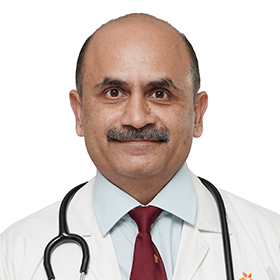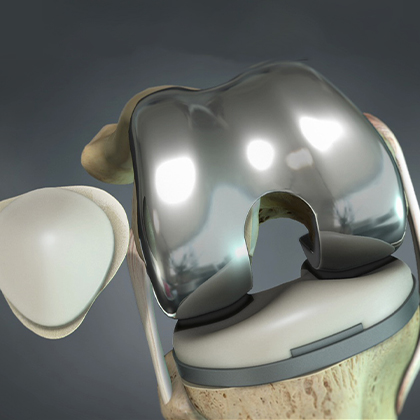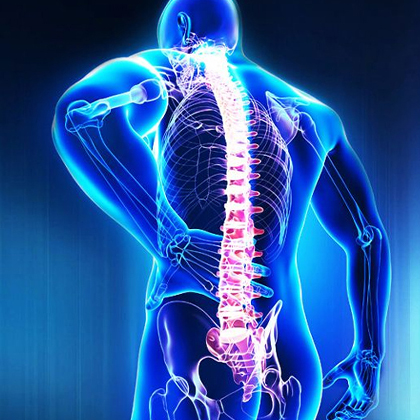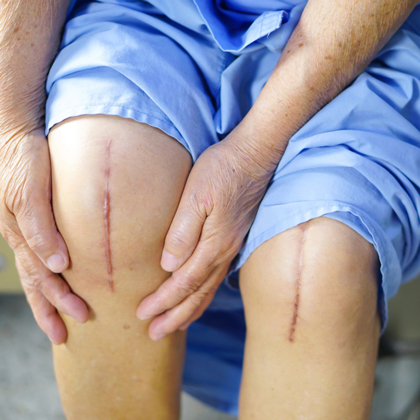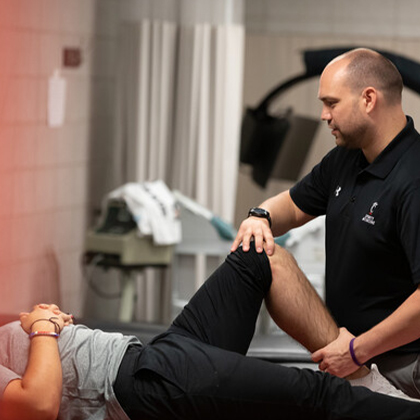
Neck Pain
Neck Pain Occasionally everyone experiences neck pain or stiffness. In most cases, it is a result of poor posture or awkward sleeping position. But in some cases, it can be serious & severe such as pain caused by a fall, accident or sports.
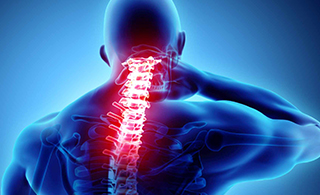
Neck pain symptoms can differ in duration & severity. Acute neck pain often lasts only a couple of days or weeks. Chronic neck pain may either be mild or severe enough to disrupt a person’s normal routine.
Most common symptoms include:
- Pain in the middle or either side of the neck
- Pain or weakness in the arms
- Stiffness, especially when the individual sits or sleeps in one position for a long time
- Numbness of tingling sensation
- Clicking or grating noise
- Tension Headaches
- Muscle spasms
If the symptoms last for more than a week, it is important to consult a doctor immediately. Also if an individual experiences the following, consult an orthopedic at the earliest.
- Lump in the neck
- Neck Pain along with fever & headache
- Swollen gland
- Nausea or vomiting
- Difficulty swallowing
- Weakness or difficulty moving hands or arms
- Inability to touch the chin to the chest
- Bladder or bowel dysfunction
Common causes of neck pain include:
Injuries
Vehicular accidents especially rear-end collisions often cause whiplash injury. It is an injury that occurs when the head jerks backward & then forward, putting severe strain on the soft tissues of the neck.
Muscle Strain
Muscle strains are one of the most common causes of neck pain. These may occur with spending too much time hunched over a computer or a phone.
Worn out joints
Just as every other joint in the body, neck joints too are prone to being worn out with age. This can result in formation of bone spurs that affect joint motion & cause pain.
Certain Conditions
Certain medical conditions such as rheumatoid arthritis, osteoporosis, fibromyalgia, spondylosis, meningitis or cancer may also cause neck pain
Nerve compression
Herniated disks in the vertebrae of the neck may press on the nerves that branch out of the spinal cord. This too can lead to neck pain
Most often neck pain is associated with bad posture. Here are a few steps you can take to prevent pain in the neck.
- Take frequent breaks while working long hours at your computer. Move around & stretch your neck & shoulders.
- Adjust your desk, chair and computer to ensure that the monitor is at your eye level.
- Quit smoking as it can increase risk of joint pain.
- Avoid carrying heavy bags over your shoulder as the weight may strain your neck
- Sleep in a healthy position by aligning your head & neck with your body.
- Use good posture. Make sure your shoulders are square & in a straight line above your hips & the ears are right over your shoulders.
After taking a medical history, the doctor is likely to perform a physical examination to check for numbness, muscle weakness or tenderness. The patient may also be recommended blood tests to check for inflammation or infections. Imaging tests such as the following may also be recommended:
- X Rays
- CT Scan
- MRI
- Electromyography

The most common treatment involves use of neck collar, physiotherapy & pain medications such as non steroidal anti inflammatory drugs.
In some cases, your doctor may recommend steroid injections into the nerve roots, spinal joints or into muscles in the neck.
In rare cases, a surgery may be considered for relieving spinal cord compression.
At Elite Orthopedics, we have the best doctors for neck pain. Our skilled & experienced orthopedic surgeons offer the best treatment for neck pain. To know more about your treatment options, consult us now.

+91 123456789
eliteOrthopedics@gmail.com
Yashoda Hospitals Hitec City

